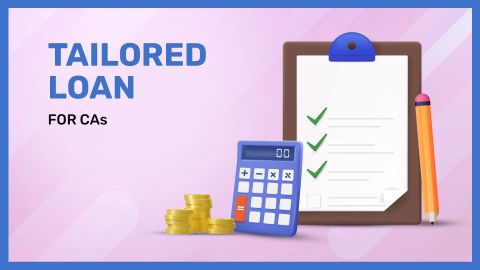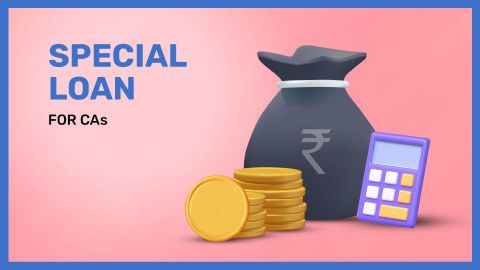How to earn the CGMA designation
CIMA Qualification Route: Most candidates earn the CGMA designation by completing the CIMA Professional Qualification, which includes a series of exams and the requirement to gain practical experience.
AICPA-CIMA Joint Pathway: An alternative route combines AICPA membership with the CIMA CGMA qualification, offering a unified pathway for accounting professionals.
In essence, the CGMA designation is a globally respected credential that reflects a professional’s expertise in management accounting and their commitment to business leadership and excellence.
Benefits of becoming CGMA
Earning the CGMA designation provides professionals with a globally recognised credential that enhances their credibility, earning potential, and career growth opportunities. It is especially valuable for Indian finance professionals aiming to stand out in competitive job markets, both in India and abroad. The CGMA equips you with the ability to analyse complex business challenges and contribute to high-level strategic decision-making. This makes it highly relevant in today’s globalised economy.
- Global recognition and credibility in management accounting.
- Access to exclusive professional resources and global networks.
- Enhanced career opportunities in multinational companies.
- Ability to make strategic and data-driven business decisions.
- Continuous professional development with updated insights.
- Higher salary potential and faster career progression.
- A strong foundation in ethical and sustainable business practices.
- Recognition as a top-tier finance leader in any industry.
Thinking of enrolling? First, check your CA loan eligibility and explore your path to success.
Steps to become a CGMA
Becoming a CGMA involves a series of academic, professional, and examination milestones. Indian professionals can pursue the CGMA pathway through the CIMA Professional Qualification or via the CGMA Finance Leadership Programme. Your eligibility and route depend on your academic background and work experience. Both routes are designed to assess your skills in real-world business scenarios.
- Choose your entry route: CIMA qualification or Finance Leadership Programme.
- Register with CIMA or the CGMA portal depending on your chosen route.
- Complete required learning modules (Certificate, Operational, Management, Strategic levels).
- Gain relevant work experience in finance, accounting, or related areas.
- Pass all required exams or case studies for your pathway.
- Submit a practical experience requirement (PER) to qualify.
- Receive your CGMA designation upon successful completion.
CGMA certification requirements
To earn the CGMA credential, candidates must meet specific educational, experience, and examination standards. Indian students can start as early as after Class 12 or post-graduation, depending on their chosen route. A blend of academic qualifications and real-world experience is vital for certification. The requirements ensure that CGMAs possess both theoretical knowledge and practical insights.
- Minimum educational qualifications (Class 12 for entry-level; graduation for accelerated routes).
- Completion of CIMA Professional Qualification or the CGMA Finance Leadership Programme.
- Minimum of 3 years of relevant practical work experience.
- Passing strategic-level case study examination.
- Submitting and getting approval for the Practical Experience Requirement (PER).
- Ongoing commitment to Continuing Professional Development (CPD).
Examination structure and syllabus for the CGMA exam
The CGMA exam structure depends on the pathway you choose. For most candidates in India, it follows the CIMA Professional Qualification route. This includes four stages: Certificate, Operational, Management, and Strategic levels. Each level concludes with a case study exam designed to assess how well you can apply your learning in real-world business scenarios. The syllabus is structured to build strong capabilities in business, finance, and management.
CGMA Exam Structure by Level
Level
|
Subjects
|
Certificate Level
|
Fundamentals of Business Economics, Management Accounting, Financial Accounting, Ethics
|
Operational Level
|
Organisational Management, Management Accounting, Financial Reporting
|
Management Level
|
Project and Relationship Management, Advanced Management Accounting, Advanced Financial Reporting
|
Strategic Level
|
Strategic Management, Risk Management, Financial Strategy
|
Case Study Exams
|
Conducted at the end of each level to assess decision-making in practical settings
|
Candidates in India can appear for these exams online with flexible scheduling. You can easily check your pre-approved CA loan offer to get the support you need without delays.
Steps to register for the CGMA exams
Registering for the CGMA exams requires selecting your route and following the official registration process via AICPA or CIMA. Indian candidates can easily register online through the CIMA global site. Once registered, you can access study materials, schedule exams, and track your qualification progress. The registration process is straightforward and beginner-friendly.
- Visit the official CIMA or CGMA website.
- Choose your route: CIMA Qualification or CGMA Finance Leadership Programme.
- Create an account and fill in personal and academic details.
- Pay the registration and exemption fees, if applicable.
- Receive confirmation and access to your learning portal.
- Schedule exams through Pearson VUE or the designated platform.
- Start your learning and exam preparation journey.
Challenges faced during the CGMA
Pursuing the CGMA credential is rewarding but can also present several challenges, particularly for working professionals in India. Balancing studies with full-time employment and managing finances for course fees and exams are common hurdles. However, with proper planning and support, these challenges can be overcome.
- Balancing exam preparation with professional and personal responsibilities.
- High financial investment for tuition, exams, and materials.
- Understanding and adapting to international accounting standards.
- Managing stress and performance anxiety during case study exams.
- Limited access to local CGMA training providers in some Indian cities.
- Meeting the Practical Experience Requirement (PER) if lacking relevant roles.
Difference between CGMA and CMA
While both CGMA and CMA are globally recognised accounting certifications, they differ in scope, focus, and governing bodies. CGMA is jointly offered by AICPA and CIMA, with a focus on strategic and management accounting. CMA, offered by the Institute of Management Accountants (IMA), focuses more on financial management and decision-making. Both are valuable, but one may suit your career goals better.
| Criteria |
CGMA |
CMA |
| Governing body |
AICPA and CIMA |
IMA |
| Focus area |
Management accounting, strategy, risk, leadership |
Financial analysis, planning, and control |
| Recognition |
Globally recognised with emphasis on leadership |
Widely accepted in financial management roles |
| Exam levels |
Four levels + case studies |
Two parts |
| Duration |
2–3 years |
1–2 years |
| Work experience requirement |
3 years in relevant field |
2 years in financial management |
| Popular among |
Global corporate finance professionals |
Accountants, analysts, and finance managers |
Related certification
|
Certified management accountant
|
Certified management accountant
|
Conclusion
The CGMA designation opens a gateway to global career opportunities in management accounting and strategic business leadership. For Indian professionals aiming to elevate their credentials and work in international environments, CGMA offers a well-structured pathway that balances theoretical knowledge with practical application. Despite some challenges, the benefits outweigh the efforts. Additionally, for professionals seeking funding options, a CA loan can support your educational journey and career growth.





